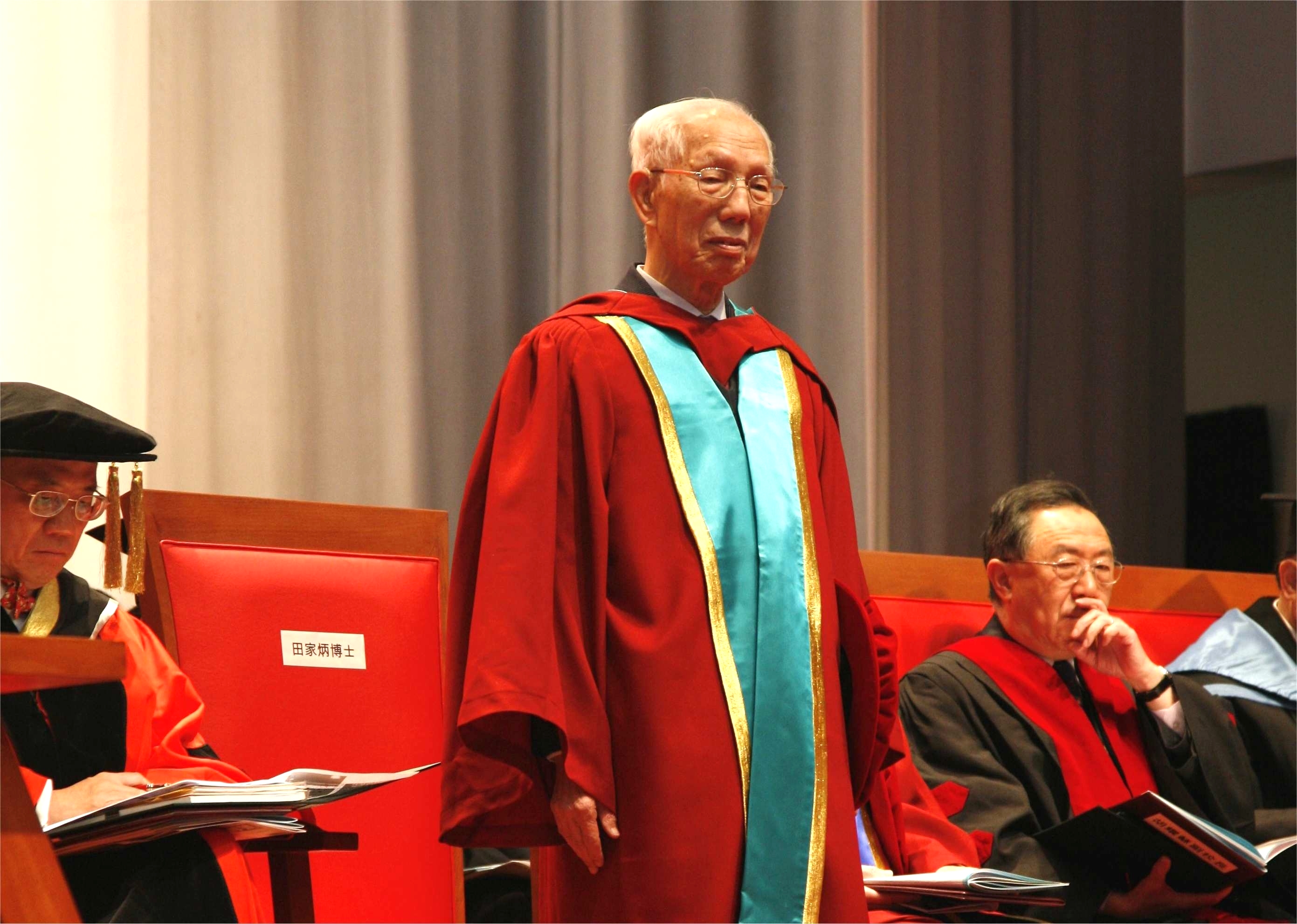Hong Kong Shue Yan University and Tin Ka Ping Foundation have reached a collaboration deal to study the life, education philosophy, and business strategies of Dr. TIN Ka Ping (1919-2018). The study aims to demonstrate Dr. TIN’s talents seen in business operations, his generosity displayed through restricting profit by means of justice, his kindness shown in social charity, and to highlight his Confucian merchandizing features.
The project features a) compilation of research monographs, b) establishment of a database to be titled Study, Business, and Education Database of Tin Ka Ping, Role Model of Confucian Merchants, and c) initiation of oral history field work. The project’s executive is Dr. Chi-kin AU, Assistant Professor of the Department of History.
Research Monograph
Dr. TIN was a renowned entrepreneur and philanthropist in Hong Kong and earned the title of King of Hong Kong Artificial Leather. He was a key person in promoting the development of the plastic industry in Hong Kong in the 1960s. In addition, he has funded educational and charitable projects in Hong Kong, mainland China, and overseas countries. The present study starts with Dr. TIN’s highly moral philosophy of restricting profit by means of justice, demonstrated in his plastic kingdom encompassing locations such as Vietnam, Indonesia, and Hong Kong.

Dr. TIN’s lifelong endeavor in charity transcended his personal interest, demonstrating the moral quality and wisdom of Confucianism, as well as triumphant business strategies. All these make him a Confucianist role model and has thus inspired the present research team to study the Confucian qualities he has demonstrated through his business operations. As studies show, Dr. TIN adopted Zhu Zi’s motto in personal, familial, and business affairs, shouldering the high responsibility of social development, education, and charity, and aiming at common good for humanity and dedication to the country. His emphasis on knowledge and learning is seen in his Tin Ka Ping foundation. Established in 1982, its focus is on building schools and developing education in the Greater China area.
With the self-assigned duty of invigorating the country through arts and education, Dr. TIN funded projects in raising education quality, thus promoting the development of the country. His endeavors have yielded Tin Ka Ping Secondary School and institutes funded under his auspices including some 20 kindergartens, 30 primary schools, 160 secondary schools, 80 colleges including teachers colleges, and over 1,650 school libraries.


Oral history and establishment of a digital database
According to Dr. AU, with the whole-hearted arrangement by Tin Ka Ping Foundation, the research team has gained access to a number of letters and files on business communication between Dr. TIN and others. Dr. TIN was found to be meticulous in his business operations, which serves as an important inspiration for future research directions. Also, the research team has been given the opportunities to speak with Dr. TIN’s descendants and with key personnel of the Tin Ka Ping Foundation to collect significant oral information and history that complements the written literature on Dr. TIN. Data collected will be organized and categorized for the establishment of a digital database for future research.
Dr. AU added that consent has been obtained from Tin Ka Ping Foundation and Hong Kong Shue Yan University for access rights to the database to be granted to academics and students of HKSYU for interdisciplinary research and digital humanities research.
Source: January 2021 Issue
